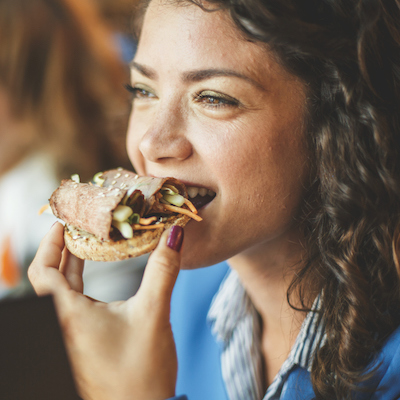Research from New Zealand’s National Heart Foundation on whole grain swaps and the heart confirms that eating whole grain foods can reduce your risk of heart disease by up to 30%.
In a world awash with the latest ‘no-carb’ or ‘low-carb’ diets on social media, the review shows that whole grains, particularly oats and barley, are associated with small improvements in cholesterol, blood pressure and body weight, and lower your risk of type 2 diabetes by 20-32%.
However, it also shows that not all grains are equal – intact, unrefined whole grains like oats, barley and brown rice are best for our bodies. Some whole grain products like crackers and breakfast cereals can still contain a lot of sugar, salt and saturated fat therefore, the closer the product is to the original grain found in nature, the better for our health.
Lily Henderson, Heart Foundation National Nutrition Advisor says that while whole grains, with their natural fibre structure still intact are best, there is not one ‘single’ food that improves heart health, it comes down to overall diet.
“If you base your meals around plenty of vegetables, fruit, legumes, whole grains, nuts, seeds and oily fish, then the nutrients will look after themselves.”
For optimal heart health, she says whole grains are best eaten in place of refined grains like white bread and pasta. If you choose to eat grain foods, aim for three servings of whole grains every day.
“A serving is roughly half a cup of cooked porridge, one slice of whole grain bread or 1/3 cup of cooked brown rice,” says Henderson.
She also suggests focusing on the quality of whole grain foods that make it into your supermarket trolley. To help you check food labels in the supermarket look for words like whole wheat, whole grain, wholemeal, multigrain, oats etc. near the beginning of the ingredients list.
“There are obvious health benefits to eating whole grains, however most of us would benefit from eating more vegetables and legumes too. We encourage swapping refined grains like white bread and pasta to different vegetables too.”
Try these affordable whole grain swaps from refined grains:
- Rice bubbles to oats
- White bread to whole grain bread
- White rice to brown rice, quinoa or barley
- Water crackers to whole grain crackers
- White flour to whole grain flours such as wholemeal flour
- White bread roll to a multigrain bread roll.
Meal suggestions for those wanting to add more whole grains into their diet include:
Breakfast: Porridge, Bircher muesli or toasted whole grain bread.
Lunch: Salami, salad and goat’s cheese multigrain bread roll.
Snacks: whole grain crackers or crispbread with hummus.
Dinner: stir-fry with buckwheat noodles; add barley to soups, casseroles or risotto; make salads with different grains like brown rice, wholemeal pasta or quinoa. Try this Quinoa & Spelt Lavosh.




